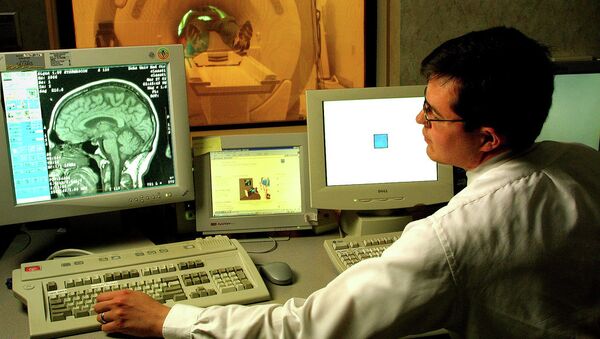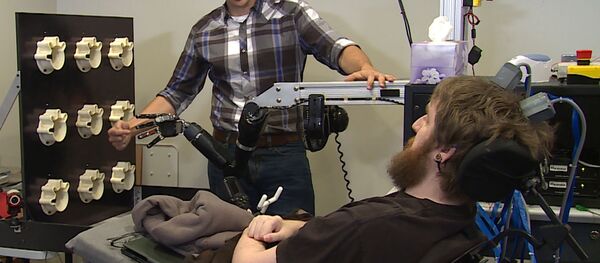The study states that information processed during multitasking "exceeds the human operator's capabilities," and leads to a decline in performance. "Within the air force, various operations such as remotely piloted and manned aircraft operations require a human operator to monitor and respond to multiple events simultaneously over a long period of time," the scientists write. "With the monotonous nature of these tasks, the operator's performance may decline shortly after their work shift commences."
The assessment was made on the basis of the results of a test developed by NASA. Two groups, both male and female, were asked to keep a crosshair inside a moving circle on a computer screen, while constantly monitoring and responding to three other tasks on the screen for 36 minutes, the Guardian reported. The first group had a constant two milliamp current beamed into the brain, while the second group had only 30 seconds of stimulation at the start of the test.
According to the results of the test, the first group demonstrated better results than the second group, four minutes into the test. "The findings provide new evidence that tDCS has the ability to augment and enhance multitasking capability in a human operator," the researchers wrote.
The test outcome has yet to be confirmed to detail if the improvement is repeatable and long-lasting.



